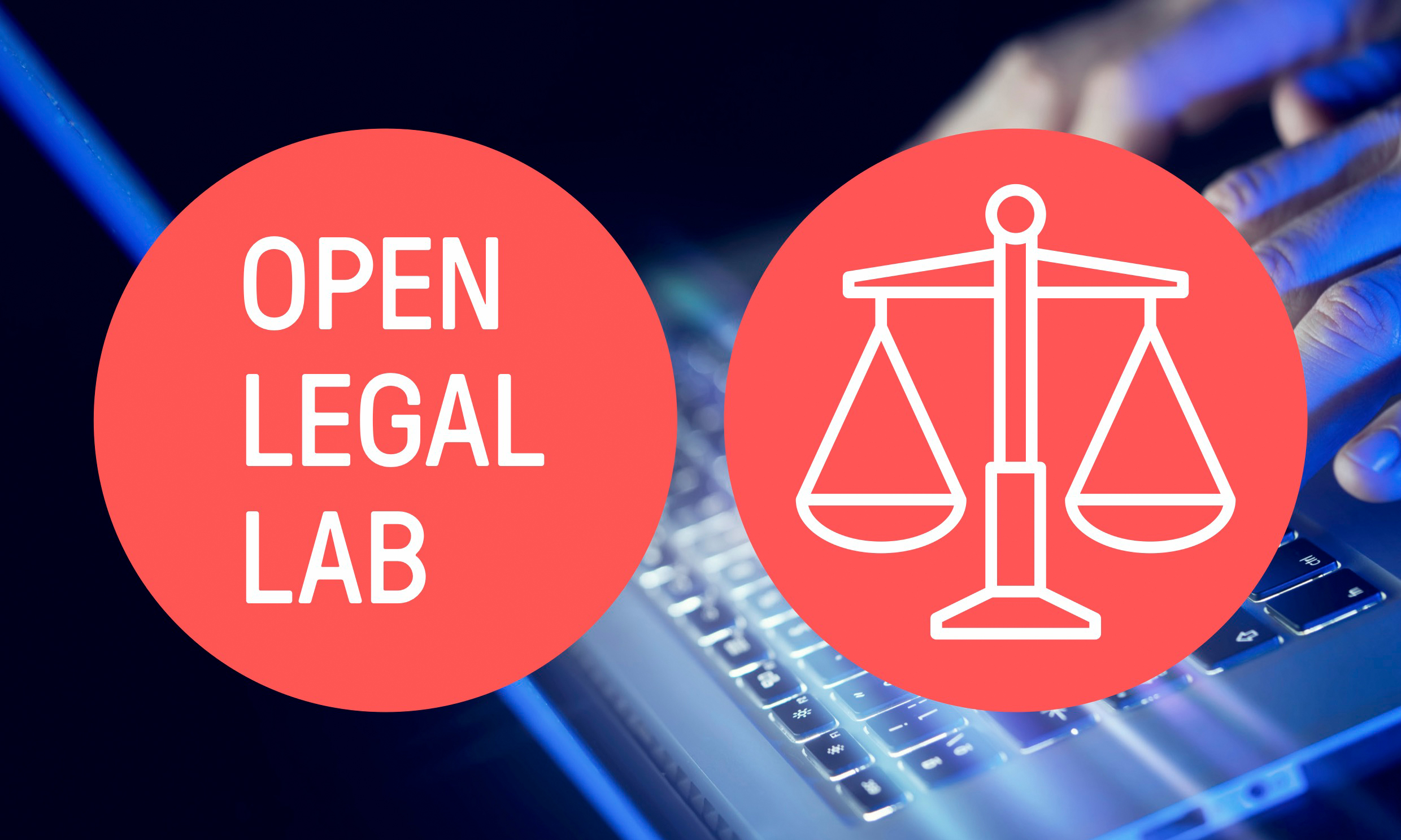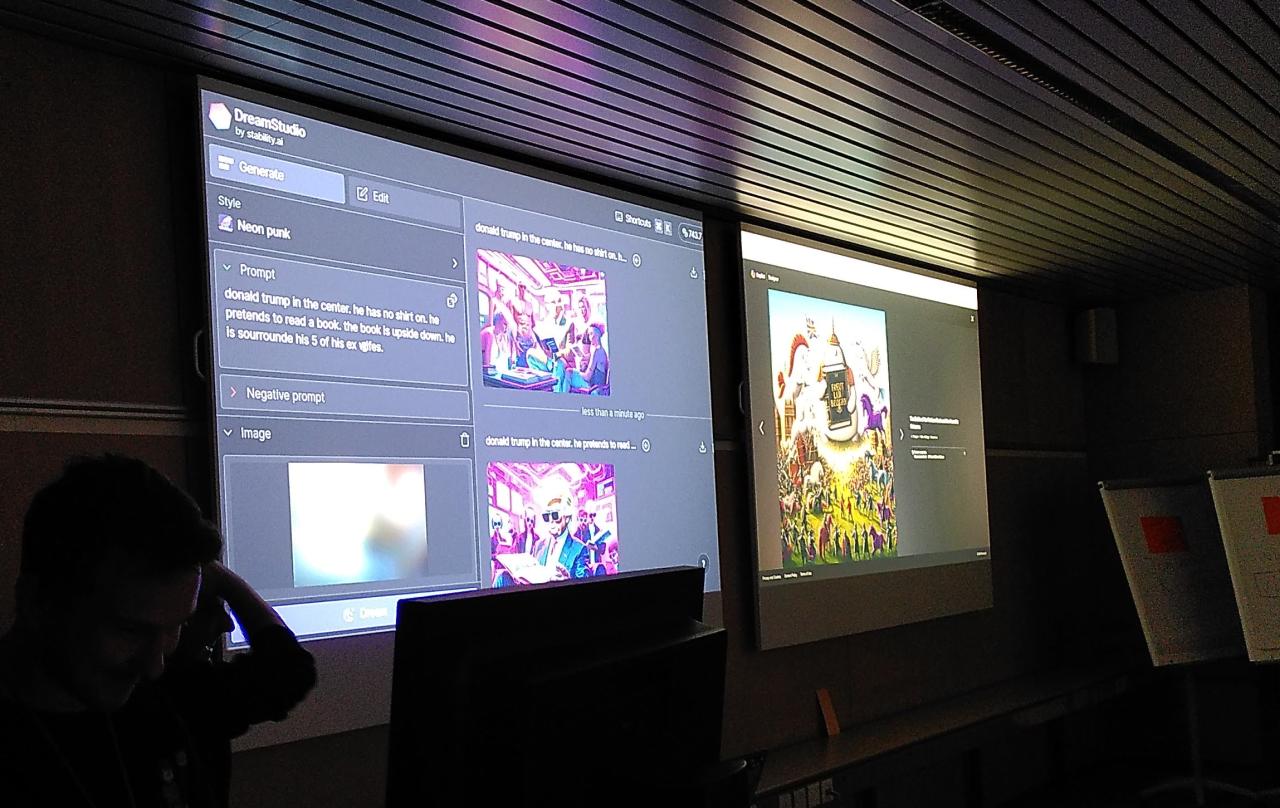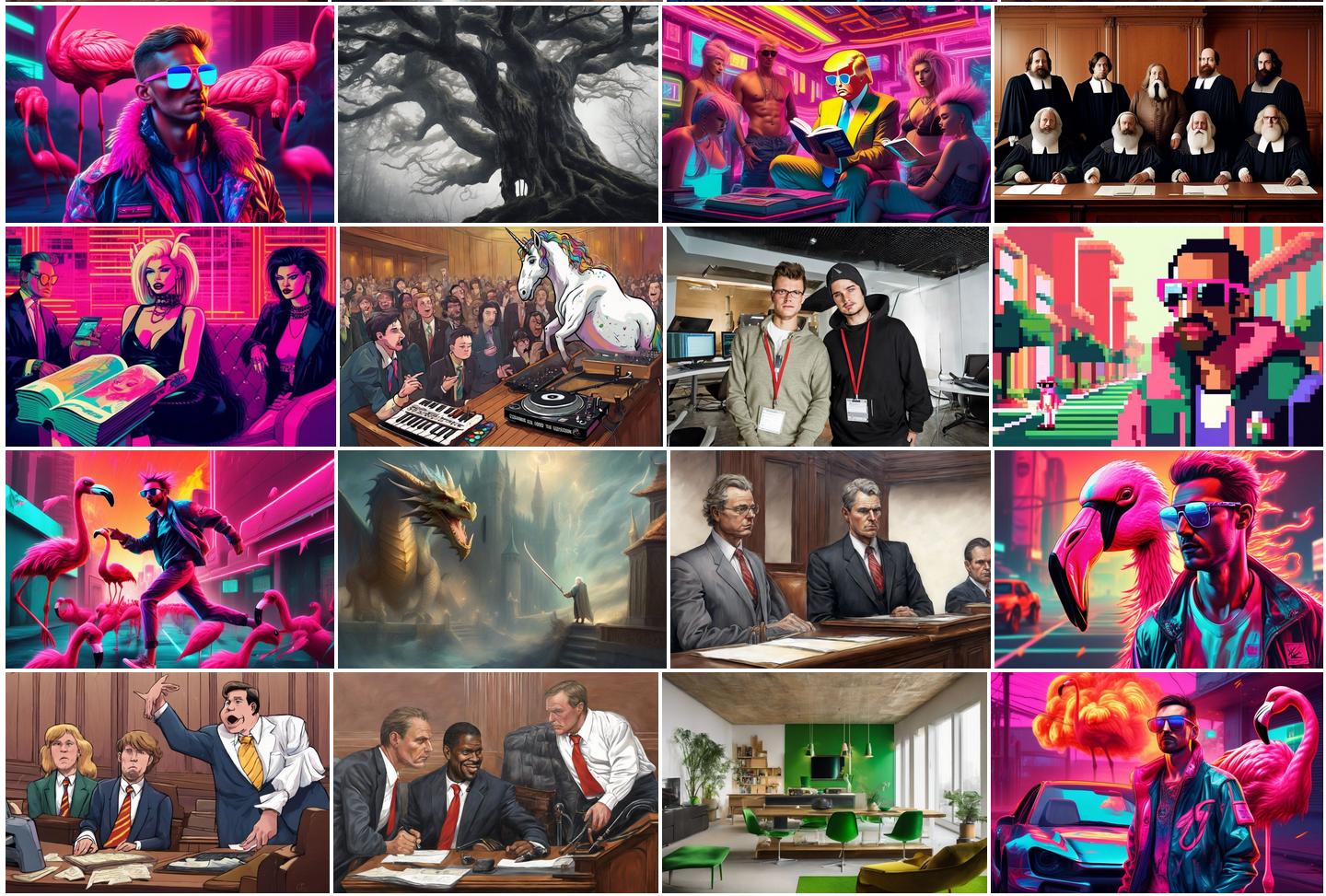Edited (version 34)
Innocent until prompted guilty
Drop the mic on your best prompts for litigation and legal work
There were several challenges at Open Legal Lab 2024 that were directly related to LLM, GPT and other A.I. techniques, and we believe all the teams used prompts in some ways during the hackathon. We created this page to discuss the general question of how do you learn to prompt? Also known as prompt engineering, this is an emerging technical field that is being noticed by the legal community. We put this page up to collect prompt ideas from our participants, and if inspiration strikes you, there is an ☝️ Etherpad here into which you are welcome to drop your token burners.
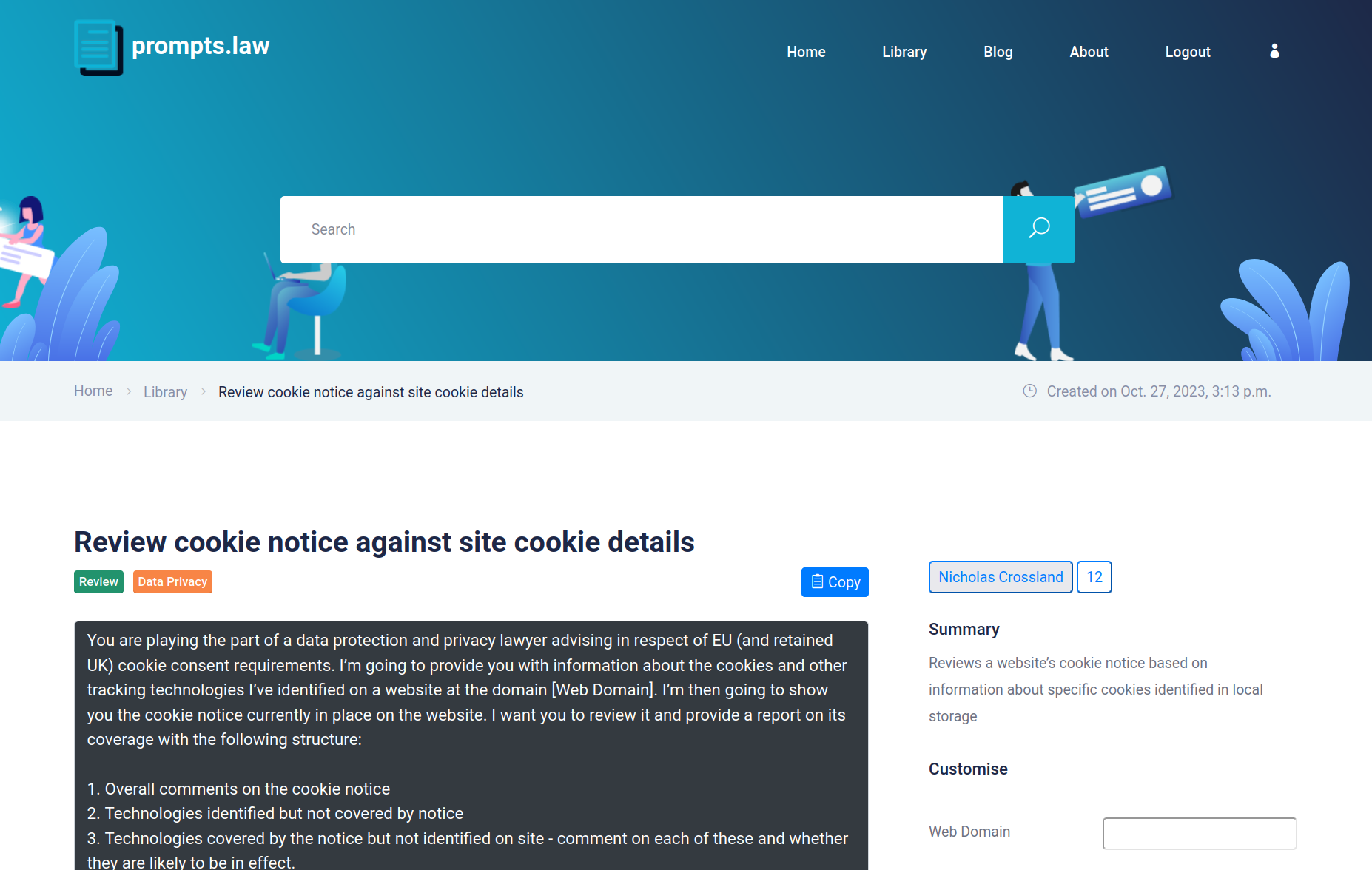
Then we discovered prompts.law - a website of "Prompts Written by the Legal Community" launched last November by a company in London. On their introductory blog post you can read a few thoughts about this new playing field - and how they want to address it by crowdsourcing and ranking prompts useful for lawyers trying to use conversational agents in their work (we hope, while keeping their and their customers data safe!) We are collecting further links in our new guide for prompting at Open Legal Labs:
Add any useful resources here for people using prompt engineering in the legal profession
Prompts and Copyright
As we run our hackathon, government juristictions (e.g. Tennessee) around the world are activating new legal measures in response to continued pressure from the creative and legal community.
We started working on a guide created at Open Legal Lab 2024 (openlegallab.ch) with assistance from NousResearch (Nous-Hermes-2-Mixtral-8x7B-DPO). In it we discuss copyright in the context of A.I. generated images is a complex and evolving area of law.
See also:
- Awesome Generative AI (Filipe Calegario - GitHub)
- Generative AI and Copyright: A Dynamic Perspective - Yang et al 2024
- Generative AI and copyright: principles, priorities and practicalities - Lim 2023
- Generative Artificial Intelligence: When Copyright, Innovation, and Equity Collide - Wu 2024
- WEF - Will copyright law enable or inhibit generative AI? (Jan 13, 2024)
Prompt Battle
As a late hour special, we took advantage of the dual-projector setup in Magglingen to run an (inofficial and very impromptu) Prompt Battle at Open Legal Lab 2024. This is a format of participative training in prompt writing with an entertaining / sports-like setup.
Two participants ("prompt artists") at a time competed for the attention and appreciation of the others using a prompt-based generative art process based on different models. The audience is asked to shout out three words: 1) a subject, 2) an action, 3) a consequence. The resulting models are voted on by the audience holding up a card (green and pink, in our case) after 3 minutes. The one with less votes after 3 rounds was asked to leave the stage, and be replaced with another participant.
The photos/videos (CC BY-NC-SA 4.0 Oleg) and result generations are available here as gallery.
Thanks to everyone for supporting our A.I. experiment/late-night experience! Check out Prompt Battle Bern and HeK in Basel ...
§ Generative A.I. Copyright Guide
A collaborative document (CC0 license) created at Open Legal Lab 2024 (openlegallab.ch) Initial version made with assistance from Nous Research (Nous-Hermes-2-Mixtral-8x7B-DPO)
FEEL FREE TO EDIT! https://pad.okfn.de/p/generative-ai-copyright-guide <<
Copyright in the context of A.I. generated images is a complex and evolving area of law. As A.I. technology advances, the legal landscape is adapting to address the unique challenges posed by generative art. We are interested in the perspective of participants of legal hackathons, who bring a diverse mix of technical and jurisprudencial views on this hot topic.
Intellectual property ramifications
1. Authorship and ownership: the question of who owns the copyright in an A.I.-generated image is not entirely clear. In some cases, the person who created the A.I. system may be considered the author, while in other cases, the person who provided the input data or trained the model may have a claim to authorship.
2. Fair use: A.I. systems may create images that are strikingly similar to existing copyrighted works. Whether such use constitutes fair use or infringement depends on various factors, such as the purpose and character of the use, the nature of the copyrighted work, the amount and substantiality of the portion used, and the effect of the use on the potential market for the original work.
3. Derivative works: A.I. systems can create new images based on existing copyrighted works. The creation and distribution of such derivative works may require permission from the original copyright holder.
Establishing authorship of the model
- Document the creative process: Look for detailed records of the development of the A.I. system, the input data, and the training process. This should be made public for transparency, and to help establish authorship and ownership claims.
- Include attribution: Clearly indicate the authorship of the A.I. system itself, the sources and legal conditions of the input data used to generate content. Make this clearly visible in your publication, along side your own claims, to help establish provenance and prevent unauthorized use.
- Register copyright: If you are the author of the A.I. system or the input data, consider registering your copyright with the appropriate government agency. This can provide additional legal protections and make it easier to enforce your rights. Not all jurisdictions, however, will respond to requests for protecting A.I.-enhanced creations.
How to check the image copyright
- Run a reverse image search: Upload an image to a reverse image search tool (see list below) to find similar images and their sources.
- Check for watermarks and metadata: Look for identifying information, such as watermarks or metadata, that may indicate the source and ownership of the image.
- Verify permissions: If you find an image that you would like to use, verify that you have the necessary permissions from the copyright holder before using it.
Reverse image search engines
* TinEye https://tineye.com/
* LibAI Lab https://www.immerse.zone
* Google Image Search https://images.google.com
* Copyseeker https://copyseeker.net/
Submitting complaints
- Contact the copyright holder: If you believe your copyright has been infringed, reach out to the person or entity using the images on a publication to request that they remove or properly attribute the image.
- Send a DMCA takedown notice: If the infringement persists, consider sending a Digital Millennium Copyright Act (DMCA) takedown notice to the website or platform hosting the infringing content. This can result in the removal of the content in question.
- Consult a lawyer: If the issue is not resolved through these steps, consult a lawyer with experience in intellectual property law to explore your legal options.
To prevent unauthorized use in generative AI models
- Watermark your images: Add a visible or invisible watermark to your images to deter unauthorized use and make it easier to identify the source of the image.
- Limit access to your images: Only share your images with trusted individuals or platforms that respect your copyright.
- Monitor the use of your images: Regularly perform reverse image searches to identify instances of unauthorized use and take appropriate action to protect your rights.
Event finished
Research
Repository updated
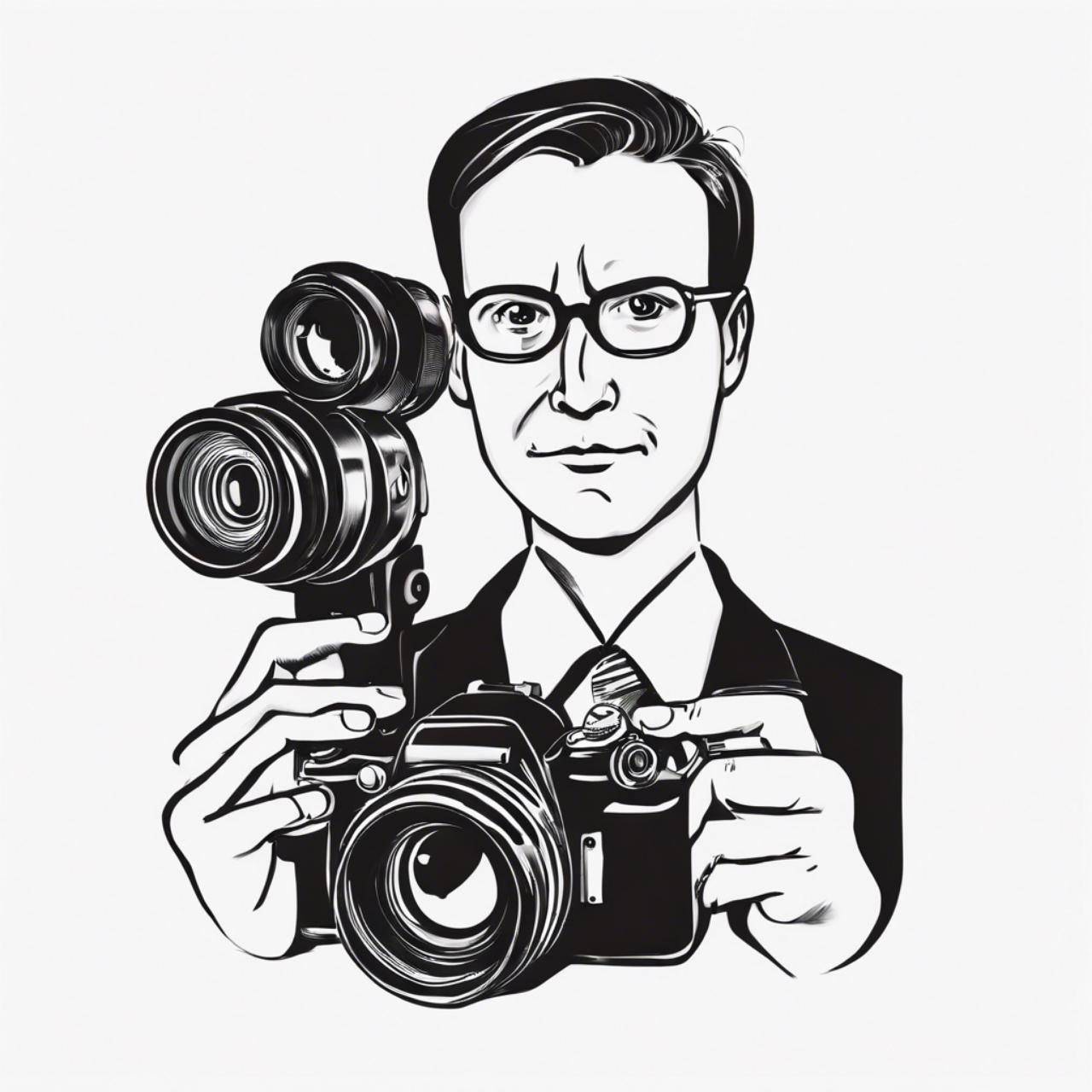 Remember to thank your team/challenge/data provider - and feel free to ask our man for a professional team photo as a keepsake!
Remember to thank your team/challenge/data provider - and feel free to ask our man for a professional team photo as a keepsake!
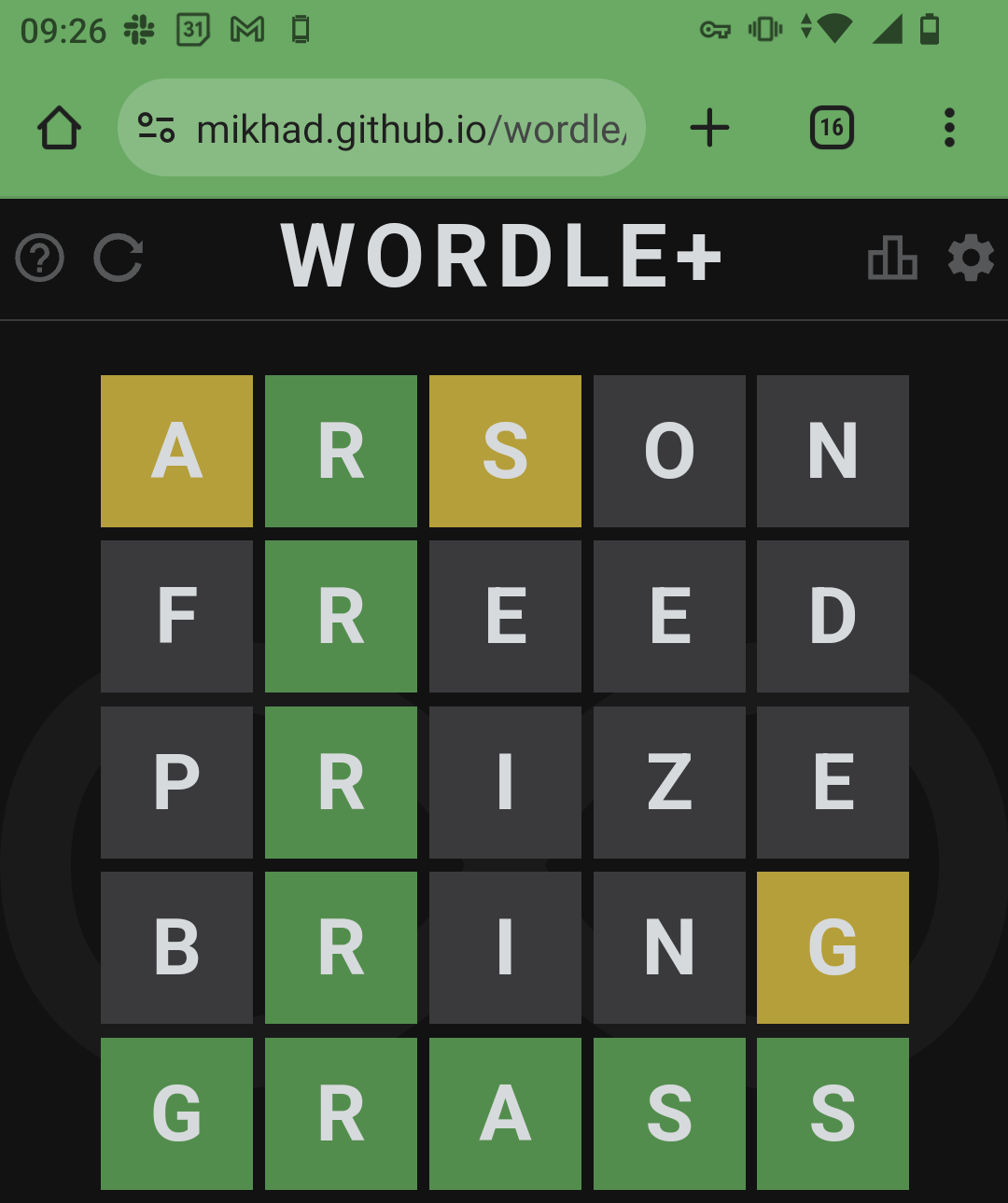 NYT on your copyright case? Flex your brain with open src word games
NYT on your copyright case? Flex your brain with open src word games
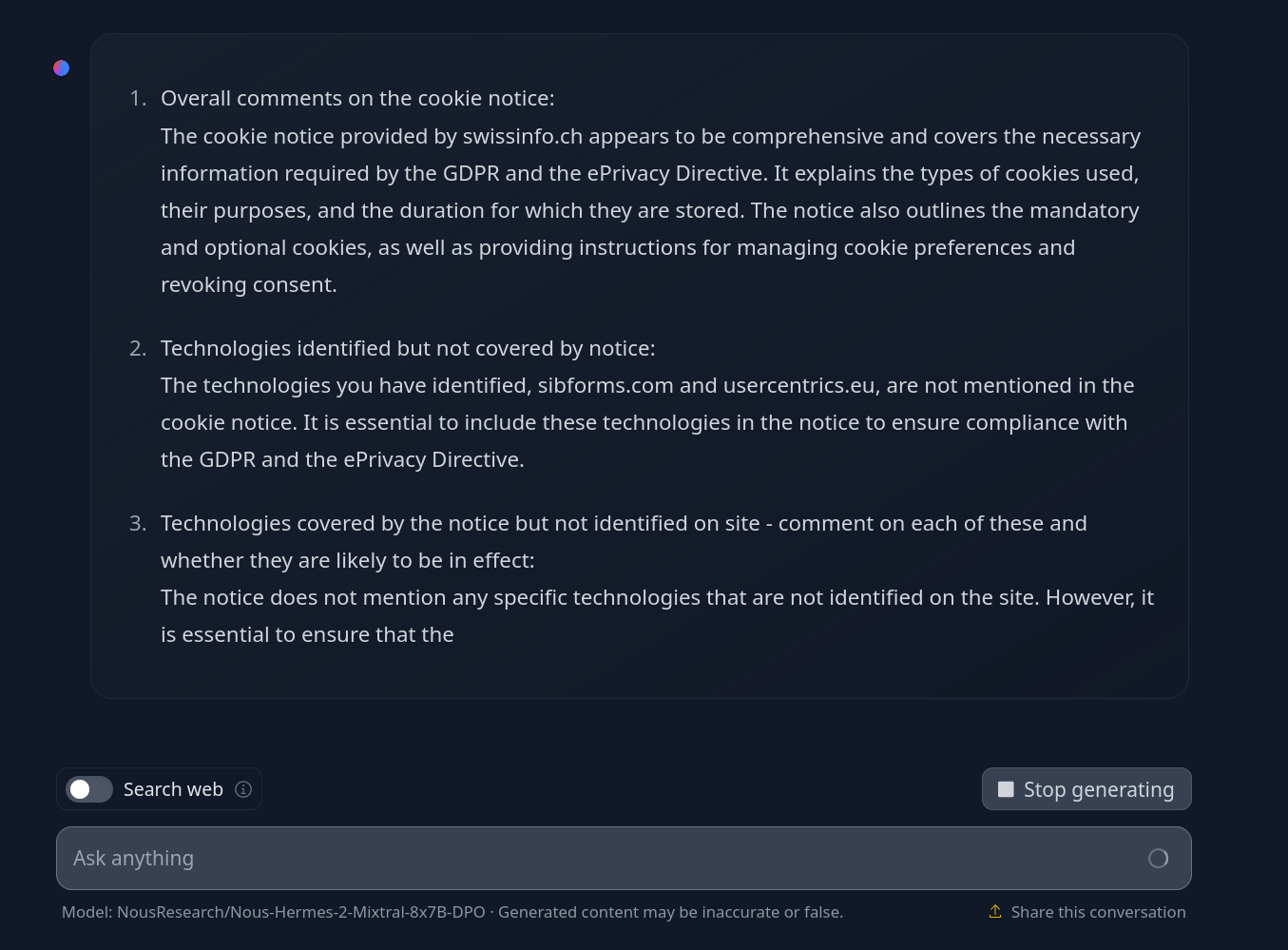 A HuggingChat conversation about the terms of use of a Swiss website, with help from Prompts.law
A HuggingChat conversation about the terms of use of a Swiss website, with help from Prompts.law
 Added prompts.law and additional references for mad prompting skills
Added prompts.law and additional references for mad prompting skills
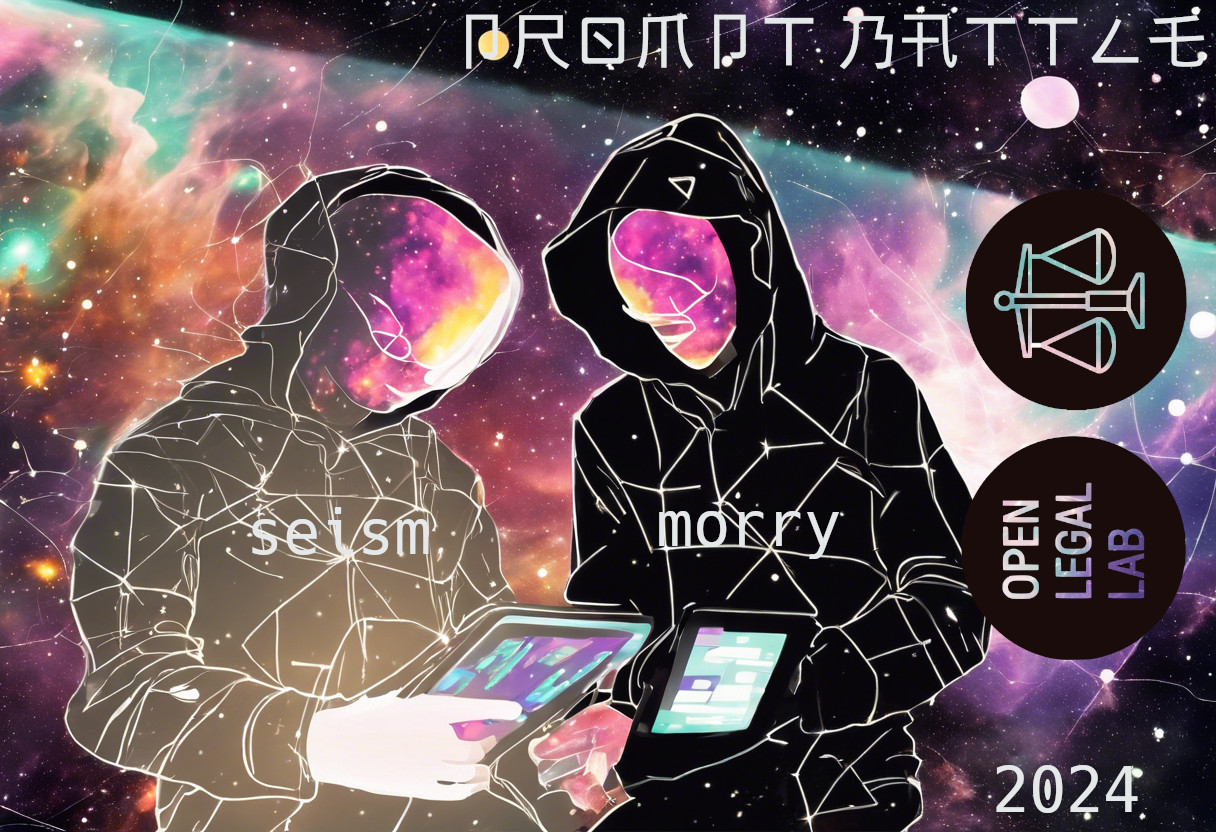
Joined the team
Project
First post View challenge
